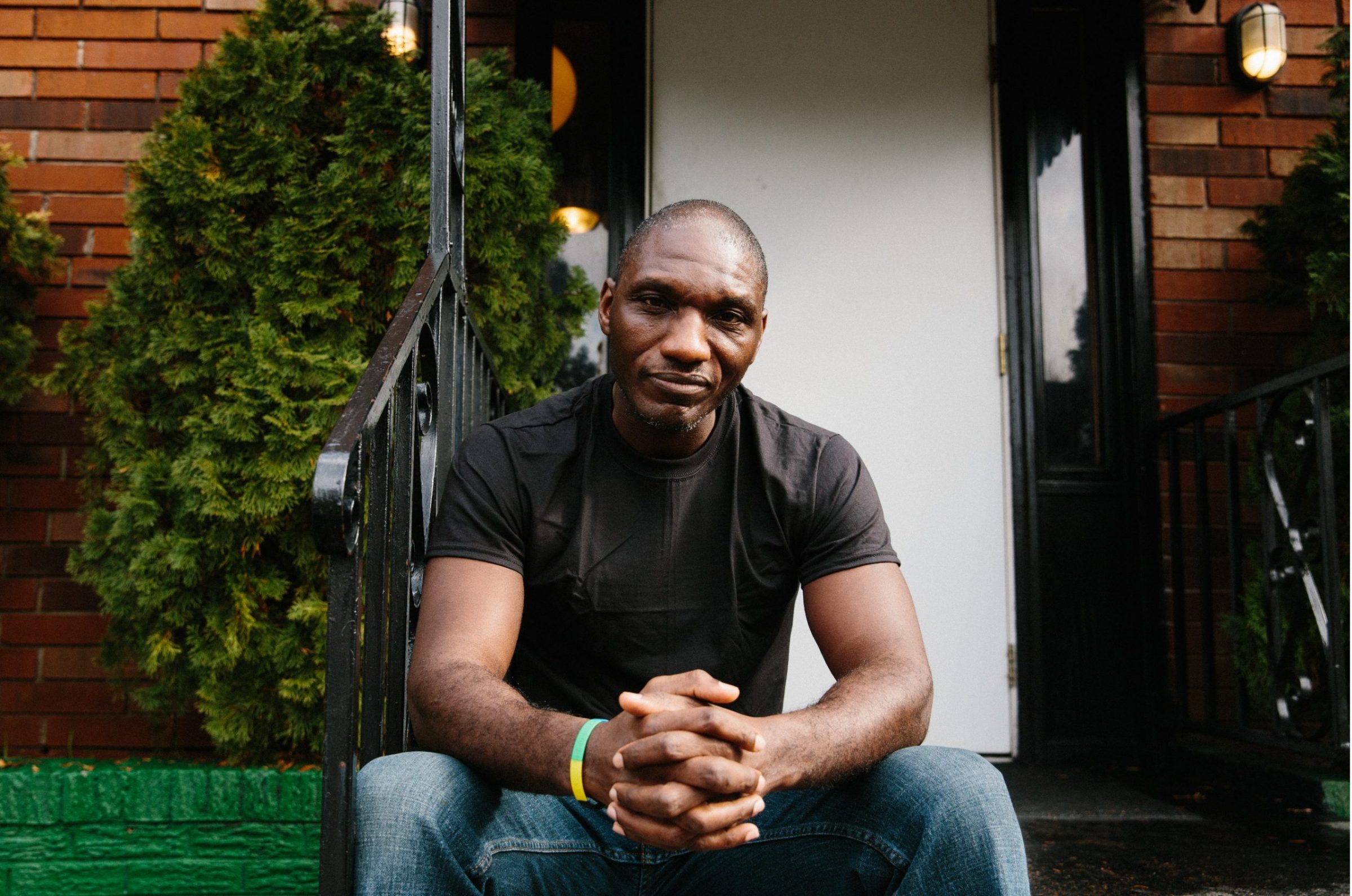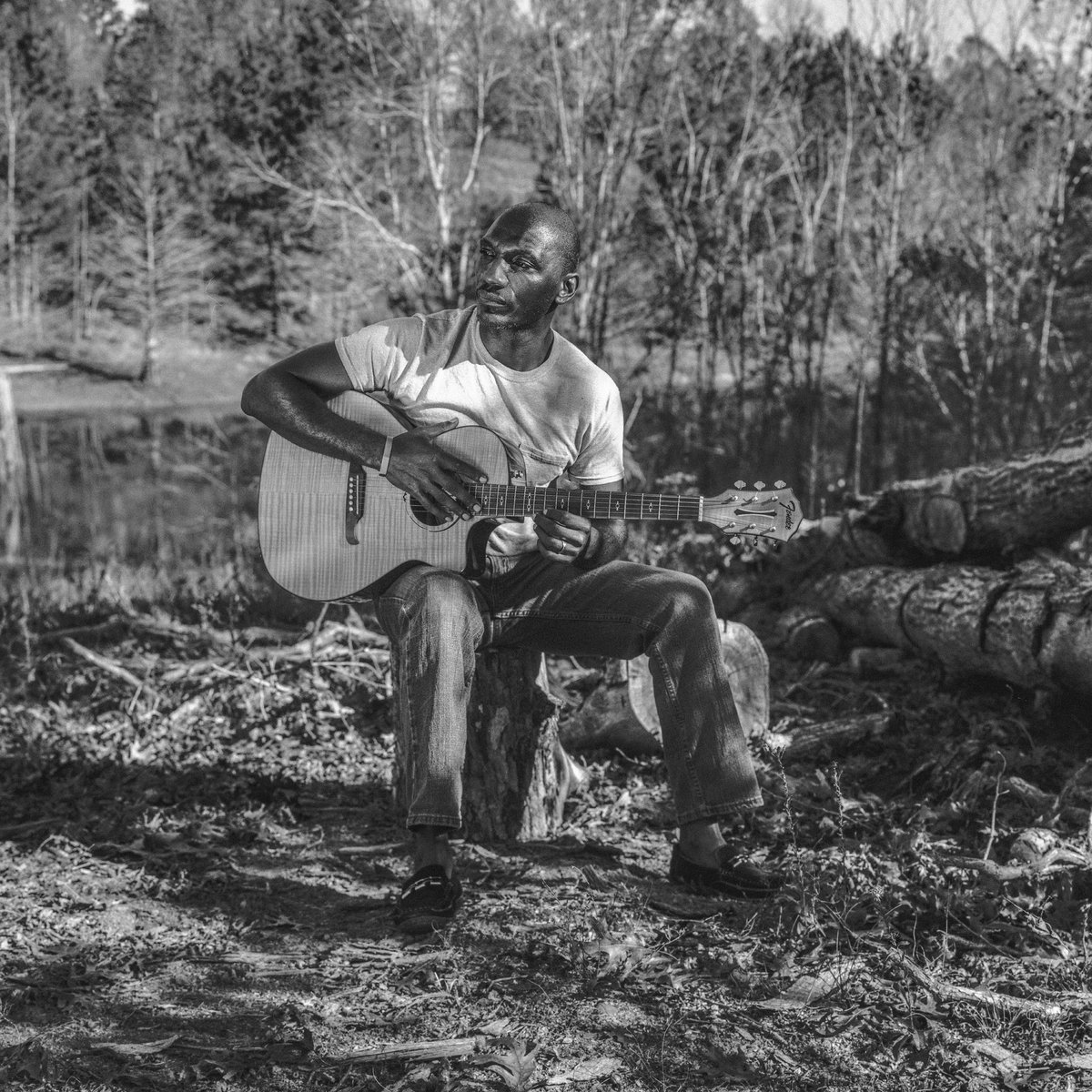Cedric Burnside has become a fixture in the regional and national blues scene, and not just because R.L. Burnside was his grandfather. Granted, starting your professional life with such a giant of the blues at age 13 can help, but it’s never been just about the name or the connections for Cedric. He honed serious drum skills over those years on the road, and has been granted several Blues Music Awards for those chops (not to mention a Grammy nomination in 2016), but he’s always had a larger vision, and in these early decades of the 21st Century, his feel and dexterity on the guitar has grown formidable as well, especially when paired with his soulful, earnest voice.
His familiarity with North Mississippi Hill Country blues guitar has been clear for years, but with this summer’s release on Single Lock Records, I Be Trying, he’s made a quantum leap in expressiveness and coherence of vision. Indeed, by altering a few details in his approach to his songs and his playing, he’s remaking the blues entirely.

That’s a tall claim to make, but one listen to I Be Trying tells the tale. One distinctive feature of Hill Country Blues has been the heaviness of the guitar tones, brazenly verging on metal territory, yet played with the subtle phrasing of less industrial times. If that was compelling, it was also more mainstream, in a sense, for what could be more familiar in today’s America than metal guitar?
In Mississippi, it was always more than just that, but now, with a new dryness and sparseness, Cedric sets even that aspect aside. Instead, he’s crafted a unique approach to the blues that deftly sidesteps any preconceived riffs or licks, and even those you’ve heard elsewhere take on a new urgency and gravitas. As if to say, “Leave all your expectations at the door.” As if to say, “I shall make a music as bleak and beautiful as this world around us.” As if to say, “I’m rebuilding from the ground up.”
Most of it was recorded in a simple three-day session at Royal Studios before the pandemic, with Boo Mitchell producing. Thus, part of the sparseness comes not from quarantine, but from the soul-gripping intimacy possible in a studio of that caliber in the right hands. As the liner notes mention, “All guitar and vocals were run through 2 Coil Audio CA70S mic preamps,” some vintage gear indeed. “Cedric used Al Green’s famed ‘Mic #9’ on ‘The World Can Be So Cold.’ Drums were tracked Willie Mitchell style, with a single Mono RCA 77DX overhead through our 536 MCI preamps.”
Though the technical specs are beyond most listeners’ expertise, the upshot is that this record was made with naught but a guitar, drums and voice, or the occasional light touch of a second guitar (including childhood friend Luther Dickinson in places), a brief bass cameo (by Zac Cockrell of the Alabama Shakes) and — would you believe it? — cello. With precious few instruments and Cedric’s soulful voice captured in such a pristine way, one gets the feeling that the band is perched on the edge of your ear.
Musically, Cedric has crafted songs that start with more of a blues feeling than any time-tested riffs or scales. The guitar parts are a bit dirty, but not saturated with distortion, and that dry sound gives them a lightness that complements their melodic figures, which are downright major-key in places. The title song is a perfect case in point: where the verse melody skips along with nary a blue note to be heard, the descending line of the chorus implies the blues without mimicking them.
“I always try to incorporate new things. Different, to me, has always been a great thing. I always wanted to be different,” Cedric tells me, and this record is the payoff. While he doesn’t shy away from his roots, and in fact has just been recognized as a National Heritage Fellow by the National Endowment for the Arts, thanks to his role in championing the North Mississippi sound, he seems to reinvent those roots afresh with that basic, experimental philosophy.
Part of the unexpected melodies and changes in these tunes hint at gospel, and certainly tunes like “The World Can Be So Cold,” “Step In” or “I Be Trying” have undeniable roots in a folk-meets-soul approach. But others seem to have sprung up as fully formed stylistic statements, out of nowhere. At times, the mixture of sparse, droning, slightly unfamiliar riffs is reminiscent of no artist more than Ali Farka Touré, the guitarist and singer who has incorporated American blues into his work more than any other artist from Mali, or anywhere in Africa.
And yet, while Cedric says he’s a recent fan of Touré, his sounds aren’t beholden to any other artist. This album takes the blues, gives them just enough of a tweak to make them strange again, and sets you down in the midst of a wide, empty landscape, urging you to face down your life and death on new terms.
Further reading: Alex Greene’s cover story on Memphis music families.
